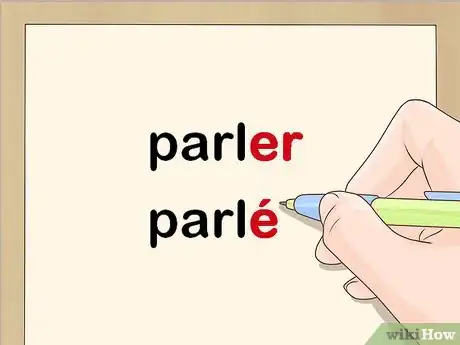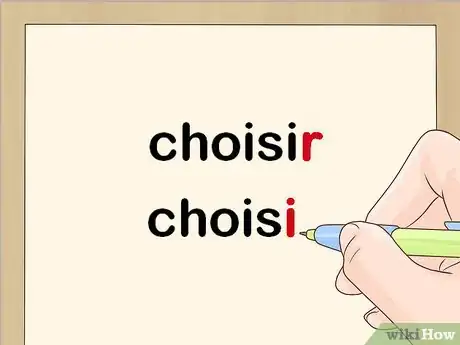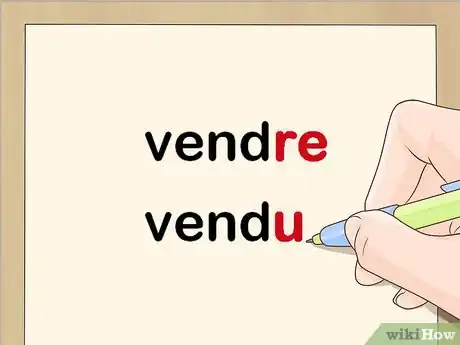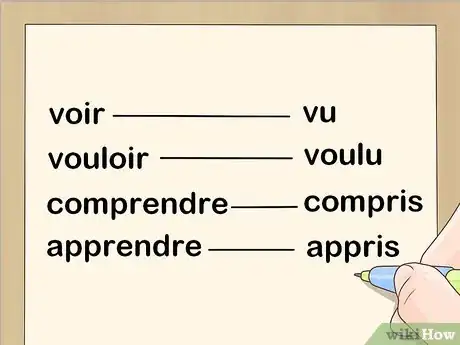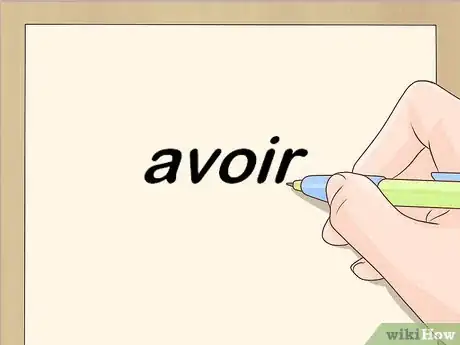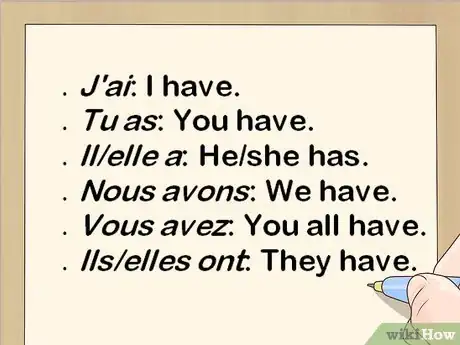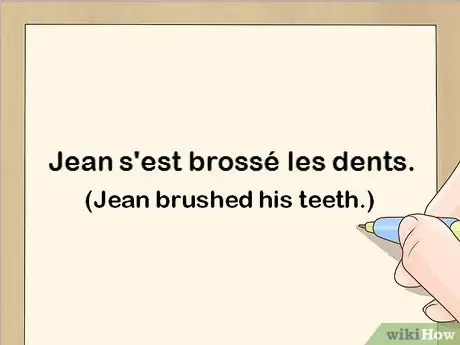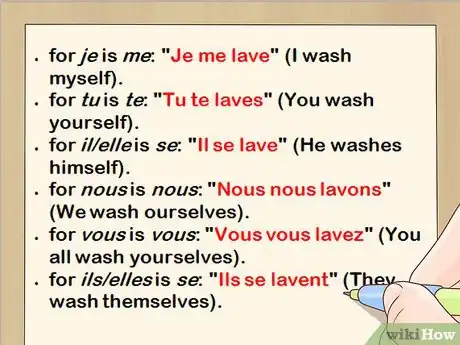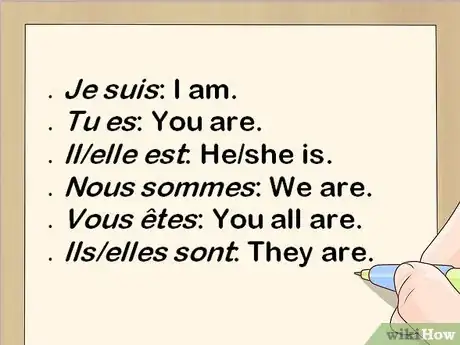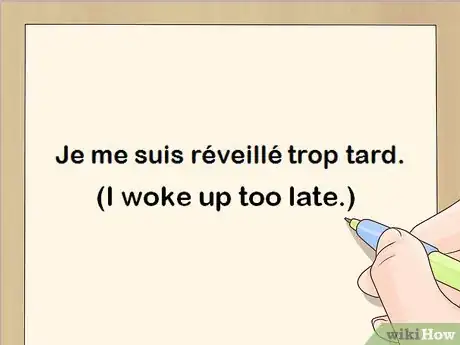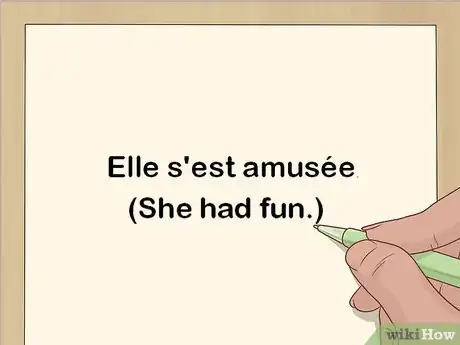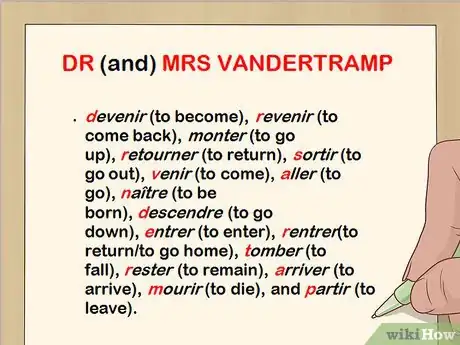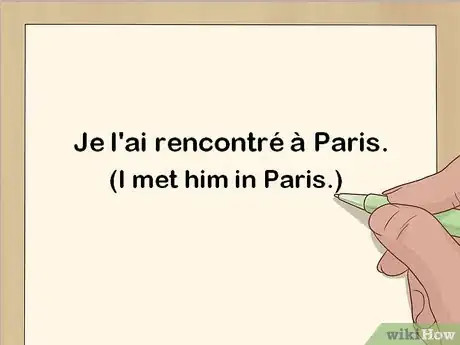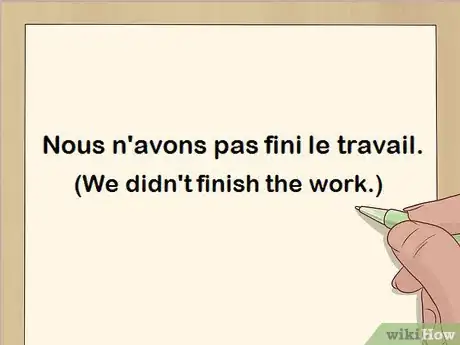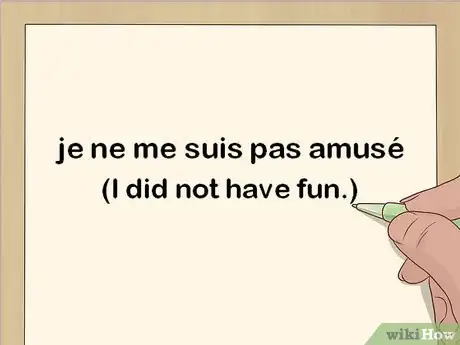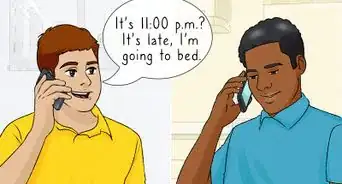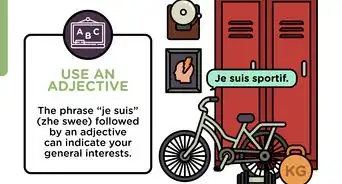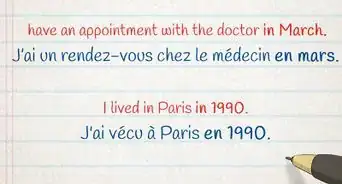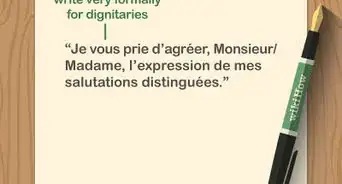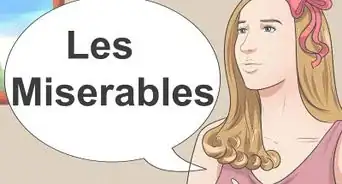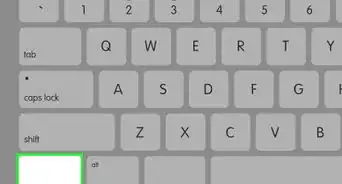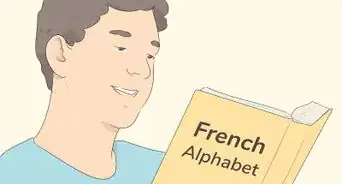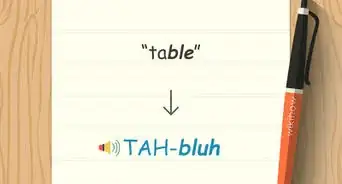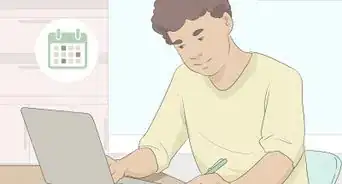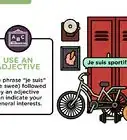This article was co-authored by Language Academia and by wikiHow staff writer, Jennifer Mueller, JD. Language Academia is a private, online language school founded by Kordilia Foxstone. Kordilia and her team specialize in teaching foreign languages and accent reduction. Language Academia offers courses in several languages, including English, Spanish, and Mandarin.
There are 9 references cited in this article, which can be found at the bottom of the page.
wikiHow marks an article as reader-approved once it receives enough positive feedback. This article has 17 testimonials from our readers, earning it our reader-approved status.
This article has been viewed 625,530 times.
French passé composé is formed using a helper verb and the past participle of the main verb. To conjugate French verbs into passé composé, you must first conjugate either être or avoir in the present tense. You then combine this helper verb with the correct past participle of the main verb. Use this tense to describe actions that have been completed in the past.
Steps
Creating the Past Participle
-
1Replace -er with é. For regular verbs ending in -er, you form the past participle by removing the -er ending and instead add an é to the infinitive. For example, the past participle of parler (to speak) is parlé.
-
2Remove the r from -ir verbs. For regular verbs ending in -ir, you don't have to remove the entire ending. Just remove the r so that the verb ends with an i. For example, the past participle of the verb choisir (to choose) is choisi.Advertisement
-
3Exchange a -re ending with a u. If you have a regular French verb ending in -re, you simply remove the -re ending and replace it with a u to form the past participle. For example, the past participle of vendre (to sell) is vendu.
-
4Memorize irregular verbs. Just as in English, French has a number of irregular verbs that may have endings similar to regular verbs, but are conjugated differently. Their past participles tend to be irregular as well, so you just have to memorize them as you come across them.[1]
- In some cases you can find patterns. For example, most irregular verbs that end in -oir have a past participle that ends in u. The past participle of "voir" (to see) is "vu;" the past participle of "vouloir" (to want or to wish) is "voulu."
- Most irregular verbs that end in -re have a past participle that ends in -is. For example, the past participle of "comprendre" (to understand) is "compris;" the past participle of "apprendre" (to learn) is "appris."
Forming Passé Composé with Avoir
-
1Use avoir for passé composé in most cases. You need an auxiliary or helper verb to form the passé composé of a verb in French. The verb avoir (to have), conjugated in the present tense, is used for most verbs to describe something that "has" happened.[2]
-
2Conjugate avoir in the present tense. The French verb avoir is a commonly used irregular verb. If you haven't already, it's a good idea to simply memorize the conjugation of this verb since you will use it often, especially with passé composé.[3]
- J'ai: I have.
- Tu as: You have.
- Il/elle a: He/she has.
- Nous avons: We have.
- Vous avez: You all have.
- Ils/elles ont: They have.
-
3Combine avoir with the correct past participle. Passé composé is a compound past tense. The helper verb avoir describes when the action takes place (in the past). The past participle of the main verb identifies what action took place.[4]
- For example: "J'ai entendu les nouvelles." (I heard the news.)
Forming Passé Composé with Être
-
1Use être (to be) for passé composé with reflexive verbs. If you're talking about doing something to yourself, you use the verb être to form the passé composé of the verb. For example, "Jean s'est brossé les dents" or "Jean brushed his teeth."[5]
- Reflexive verbs are easy to recognize because the infinitive begins with the pronoun se. For example, "se réveiller" is a reflexive verb that means "to wake up."
-
2Add the appropriate reflexive pronoun. The reflexive pronoun you use should match the subject of your sentence. Memorize the correct reflexive pronoun for each subject pronoun.
- The reflexive pronoun for je is me: "Je me lave" (I wash myself).
- The reflexive pronoun for tu is te: "Tu te laves" (You wash yourself).
- The reflexive pronoun for il/elle is se: "Il se lave" (He washes himself).
- The reflexive pronoun for nous is nous: "Nous nous lavons" (We wash ourselves).
- The reflexive pronoun for vous is vous: "Vous vous lavez" (You all wash yourselves).
- The reflexive pronoun for ils/elles is se: "Ils se lavent" (They wash themselves).
-
3Conjugate être in the present tense. Use the present tense form of the verb être that corresponds to the gender and number of the subject. Since this is an irregular verb, memorize the conjugation if you haven't already.[6]
- Je suis: I am.
- Tu es: You are.
- Il/elle est: He/she is.
- Nous sommes: We are.
- Vous êtes: You all are.
- Ils/elles sont: They are.
-
4Combine être with the correct past participle. The correct conjugated form of the helper verb être goes immediately before the past participle of your main verb. Voilà! Your verb is now in passé composé.[7]
- For example: "Je me suis réveillé trop tard." (I woke up too late.)
-
5Adjust the past participle to agree with the subject. Typically when you're forming passé composé with être as your helper verb, the past participle must agree with the subject in terms of gender and number. Add an e if the subject is feminine, and an s if the subject is plural.[8]
- For example: "Elle s'est amusée." (She had fun.)
- There are exceptions. If you're talking about a part of the body, there isn't agreement. For example: "Elle s'est lavée" (She washed herself) but "Elle s'est lavé les cheveux" (She washed her hair.)
-
6Try a mnemonic device to memorize verbs that use être. In addition to reflexive verbs, there are several other French verbs that also need être in passé composé. You can memorize these verbs with the help of the mnemonic "DR (and) MRS VANDERTRAMP."[9]
- In order of the mnemonic, these verbs are devenir (to become), revenir (to come back), monter (to go up), retourner (to return), sortir (to go out), venir (to come), aller (to go), naître (to be born), descendre (to go down), entrer (to enter), rentrer (to return/to go home), tomber (to fall), rester (to remain), arriver (to arrive), mourir (to die), and partir (to leave).
Using Passé Composé in a Sentence
-
1Invert the helper verb to ask a question. You may already know that you invert the subject and the verb to ask a question in French. When asking a question using passé composé, you only invert the helper verb. Hyphenate the helper verb and the subject. The past participle immediately follows the subject.[10]
- For example: "As-tu mangé?" (Did you eat?).
-
2Place object pronouns between the subject and the helper verb. In French, an object pronoun typically comes immediately before the verb of which it is an object. When you have a combined verb like passé composé, it comes before the conjugated helper verb.[11]
- For example: "Je l'ai rencontré à Paris." (I met him in Paris.)
- Use the same placement rule for reflexive pronouns. For example: "Je me suis amusé." (I had fun.)[12]
-
3Form negatives around the helper verb. If you want to use passé composé to say that something didn't happen in the past, be careful not to include the past participle in your negative. Only place "ne… pas" around the conjugated verb – here, the helper verb avoir.[13]
- For example: "Nous n'avons pas fini le travail." (We didn't finish the work.)
-
4Keep être and the reflexive pronoun together with negatives. If you want to write a negative sentence in passé composé for a verb that uses être, you place the ne…pas around the reflexive pronoun and the helper verb être.[14]
- The ne precedes the reflexive pronoun and the pas follows after the conjugated form of être. For example: "je ne me suis pas amusé" (I did not have fun.)
Community Q&A
-
QuestionDo you have any methods for remembering when to use etre and avoir in passé composé?
 Community AnswerTry DR (and) MRS P VANDERTRAMP: Devenir, Revenir (and) Monter, Rester, Sortir. Passer (under certain circumstances). Venir, Aller, Naitre, Descendre, Entrer, Retourner, Tomber, Rentrer, Arriver, Mourir and Partir.
Community AnswerTry DR (and) MRS P VANDERTRAMP: Devenir, Revenir (and) Monter, Rester, Sortir. Passer (under certain circumstances). Venir, Aller, Naitre, Descendre, Entrer, Retourner, Tomber, Rentrer, Arriver, Mourir and Partir. -
QuestionWhat are the verbs that use avoir?
 Community AnswerThere are thousands, just think of it as everything that wasn't mentioned as étre.
Community AnswerThere are thousands, just think of it as everything that wasn't mentioned as étre. -
QuestionI am having trouble conjugating verbs in my French class, and my teacher is terrible at teaching. What can I do to learn on my own?
 Community AnswerYou can learn French with songs, movies, a dictionary, lessons on the web, and speaking a lot with others in French.
Community AnswerYou can learn French with songs, movies, a dictionary, lessons on the web, and speaking a lot with others in French.
References
- ↑ https://www.laits.utexas.edu/jnl/passe_compose/passecompose2_learn.html
- ↑ https://www.cliffsnotes.com/study-guides/french/french-i/french-i-the-passe-compose/the-passe-compose-with-avoir
- ↑ http://www.french-linguistics.co.uk/verbs/table/avoir.html#.WdO5D62ZNok
- ↑ https://www.cliffsnotes.com/study-guides/french/french-i/french-i-the-passe-compose/the-passe-compose-with-avoir/
- ↑ http://laits.utexas.edu/tex/gr/tap4.html
- ↑ http://www.french-linguistics.co.uk/verbs/table/%EAtre.html#.WdPFvq2ZMxc
- ↑ http://laits.utexas.edu/tex/gr/tap2.html
- ↑ http://laits.utexas.edu/tex/gr/tap4.html
- ↑ https://www.fluentu.com/blog/french/dr-mrs-vandertramp-verbs/
- ↑ https://www.cliffsnotes.com/study-guides/french/french-i/french-i-the-passe-compose/the-passe-compose-with-avoir
- ↑ https://www.laits.utexas.edu/tex/pr/pro5.html
- ↑ http://laits.utexas.edu/tex/gr/tap4.html
- ↑ https://www.cliffsnotes.com/study-guides/french/french-i/french-i-the-passe-compose/the-passe-compose-with-avoir
- ↑ http://laits.utexas.edu/tex/gr/tap4.html
